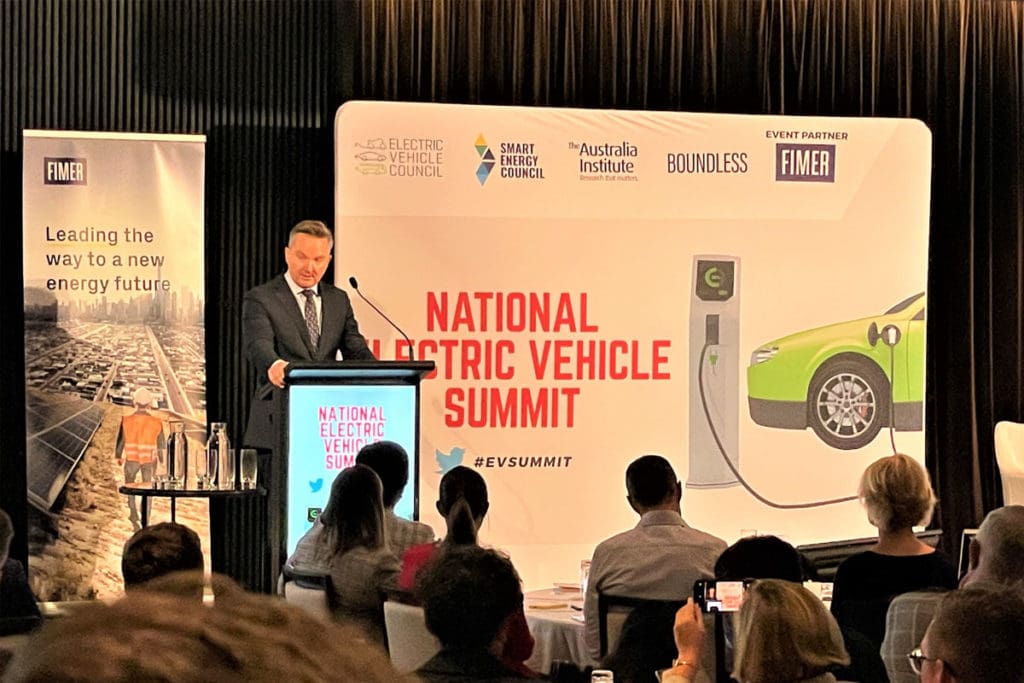EV Summit Strengthens E-Bike Role in Transport Solutions

Canberra, ACT
Micromobility is set to become a more central player in national solutions to Australia’s transport emissions and other transport problems, after cycling advocates were part of last month’s inaugural National Electric Vehicles (EV) Summit, according to We Ride Australia’s director – national relationships, Stephen Hodge.
“We fully expect active travel and micromobility to be a major part of considerations about mobility and climate solutions from here on,” he said, following the summit in Canberra on 19 August.
“We have already been asked to participate in a range of other forums and have a large work plan to reach out to the relevant departments, MPs and stakeholders.
“The EV Summit was a one-of-a-kind and will hopefully create more opportunities for us to be present and influence the transport agenda as this government puts it priorities into action.”
In a letter to We Ride Australia members, executive officer Peter Bourke said the organisation’s attendance at the summit “ensured cycling was included in critical discussions and decision makers were reminded that although electric cars are important, over 13 million bicycles (one of the most sustainable transport solutions) have been sold in Australia over the last 10 years”.
Peter said We Ride Australia’s involvement was integral to its efforts to have e-bikes included in the Fringe Benefits Tax and Import Duties Bill for e-vehicles, which was debated at the summit, along with other future sustainable transport incentives and policies.
“We Ride is focused on ensuring that e-bikes are included in this Bill and is lobbying key Senators as passage of this Bill is currently being negotiated through the Senate,” he said.
We Ride drafted a submission on the Treasury Laws Amendment (Electric Car Discount) Bill 2022, calling for an extension to e-bikes of the same tax and FBT incentives contained in the legislation for EVs. It provided copies of the submission to parliamentarians present at the meeting and have requested meetings with more independents to discuss the issues.
The summit was attended by leading industry and climate figures, State and Territory ministers, ‘teal’ Independents and a full program of industry and political leaders including the Federal Minister for Climate Change and Energy, Chris Bowen, high-profile Senate Independent for the ACT David Pocock, tech billionaire Mike Canon-Brookes (Atlassian), the Chair of Tesla and the Tech Council of Australia Robyn Denholm and car industry delegates.
It was jointly hosted by the Electric Vehicle Council, Smart Energy Council, The Australia Institute and Boundless, a renewables and EV venture by Mike Cannon-Brookes which also funded the event.
Peter said the event allowed conversations with a wide range of MPs and Senators, including the newly elected independents, along with industry and influential think tanks.
It is in these rooms that future sustainable transport incentives and policies are debated, including the current FBT and import duties bills for evehicles.
WeRide is focused on ensuring that ebikes are included in this bill and is lobbying key Senators as passage of this bill through the is currently being negotiated through the Senate.
Stephen said most groups involved in Australia’s sustainable transport discussions are engaged in many initiatives across the transport sector, not just promoting EVs.
“We have lined up quite a few discussions with organisations who were at the Summit to further our work on promoting bike riding and micromobility,” he added.
“While the Government has a laser focus on getting action on transport emissions and a fuel efficiency standard up and running, many of the groups in the room understand we are just starting off on this journey.
“Reviewing the conversations we had on the day, it’s incredible how broad they were and how ready everyone is to collaborate and look at a much broader range of actions needed to reduce our transport emissions.”
“It is an issue for us that the reductions in transport emissions will be almost impossible to achieve by selling more EVs. Oxford Professor Christian Brand has said that focusing solely on electric vehicles is slowing down the race to zero emissions.
“It has been stated that even if every car sold from tomorrow is an EV, it will still take at least 15 years to achieve the targets, So EVs alone are not the answer. A shift to more active and public transport for a portion of the transport task is however possible for a percentage of all transport trips. This is our focus.”
Smart Energy Council policy advisor Gabrielle Kuiper had a similar message at the summit, saying electrifying half of the vehicle fleet should be the goal. The other half should be replaced with walking, cycling and public transport.
